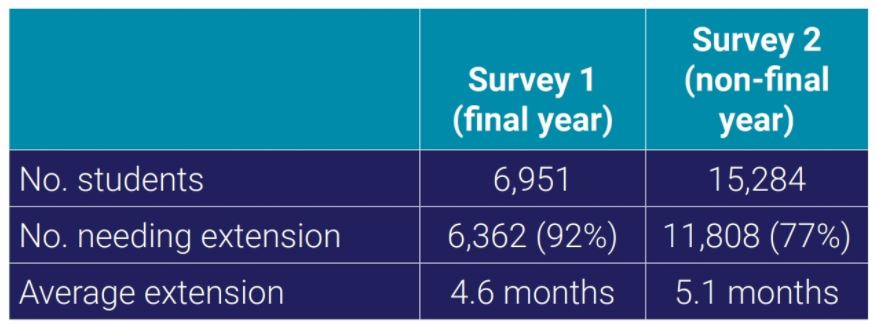UKRI publishes its review of support for PGRs during the pandemic
Jim is an Associate Editor (SUs) at Wonkhe
Tags
But you get the feeling that they really meant keep students on taught programmes paying their fees and get them out of the door so more can come. What about PGRs?
Just before the Easter break, UK Research and Innovation (UKRI) issued final-year PhD students with an extra six months of funding.
Then back in July on the site, Andrew McRae hoped that once UKRI had examined the evidence of institutional surveys focused on the impact of Covid-19 on PGRs, that we would have a new package of support for research students whose progress has been impacted by the pandemic.
Well, sort of. UKRI has published the results of a review of support for students during the pandemic, and there is at least a recognition that this year has been “extremely difficult” for students, noting that it may be some time before conditions for access to resources and labs and for field work return to normal.
There’s a long report on the work done to understand the problem, but this table does the job:

The solution, embedded in this new Review of Extensions for Students Impacted by Covid-19 will fall short for many. First, students and supervisors should discuss whether projects can be “adjusted”:
We are therefore advising all students funded by UKRI, including those on grants from any of the seven research councils, to speak to their supervisors about how to adjust their project to complete a doctoral-level qualification within their funded period.
That, of course, is another way of saying that there won’t be any further blanket extensions to funding. There is a recognition that, even after adapting, some students will not be able to complete within their current funded period – and so it is providing some additional funding for those in most need, such as students whose final year of funding ends on or before 30 September.
It says that this £19m will be focussed with ongoing support needs – including disabled students, those with long term illnesses, those who are neurodivergent, or those that have caring responsibilities. That may be a moral concern, or it may be in recognition of some of the potential legal complications of letting down disabled students – but either way, that £19m is unlikely to be enough.
The allocation may only be used to support funded extensions for UKRI-funded students who have not submitted their doctoral thesis and have not already received a UKRI funded extension under the initial policy. And extensions will not be available for students with a funding start date of 1 March 2020 onwards.
Inevitably, when trying to work out if a “doctoral-level qualification” can be salvaged within the funding (period) left, UKRI is “determined that reduced doctoral outputs as a result of the pandemic should not be seen to diminish standards in doctoral education”. Couple that with the reality in the new policy that any funding provided is not intended to cover “time lost due to COVID-19”, and you can see the squeeze.
Now clearly not all PGRs are UKRI funded. But UKRI does set the defacto standard here, and so things look pretty bleak for students who’ve been prevented from making meaningful progress for most of the last eight months. These sorts of things have real human impacts, and I’d recommend spending a bit of time immersing in this padlet to understand them. They put it all much better than I could.
Maybe the Office for Students will have things to say here given the potential huge impacts this could all have, but don’t bet on it.

